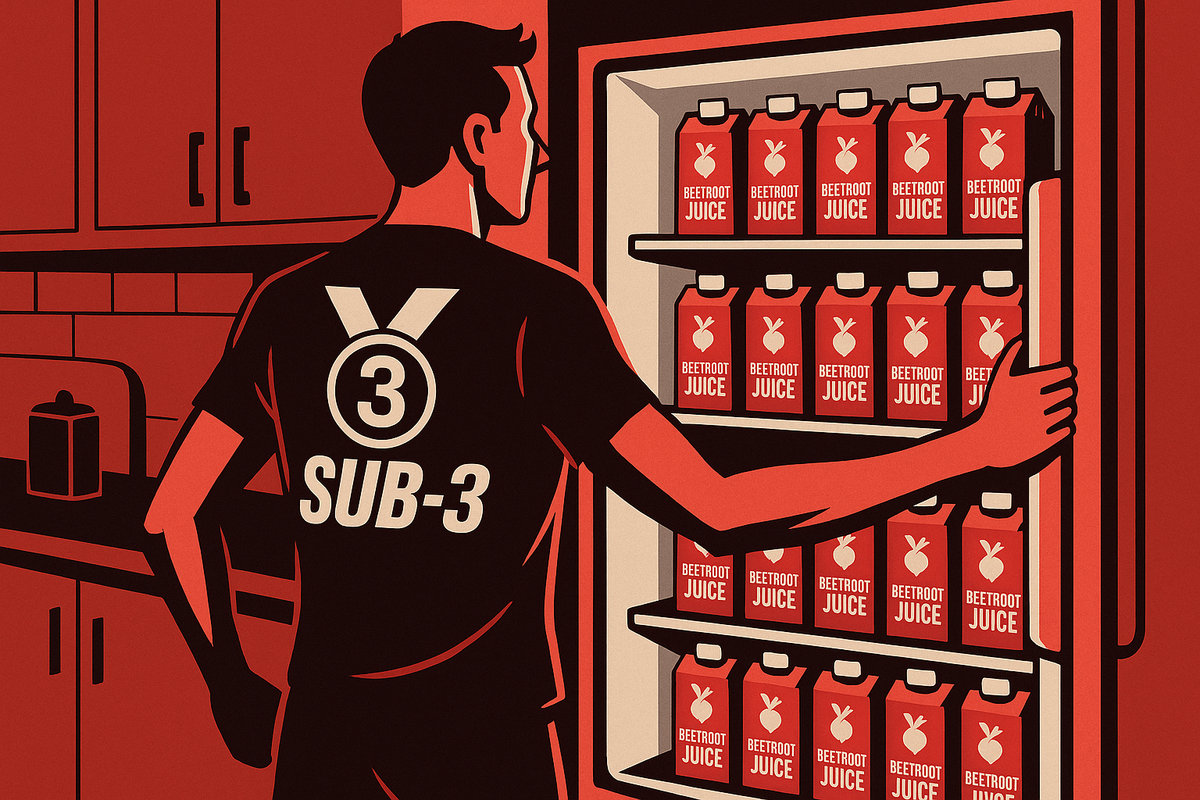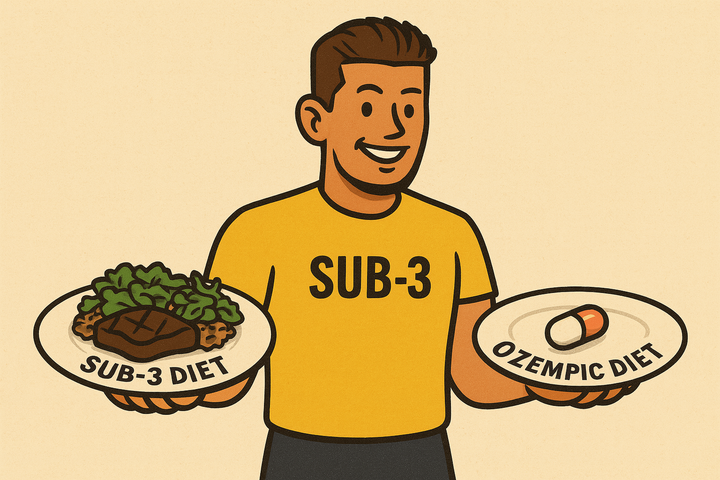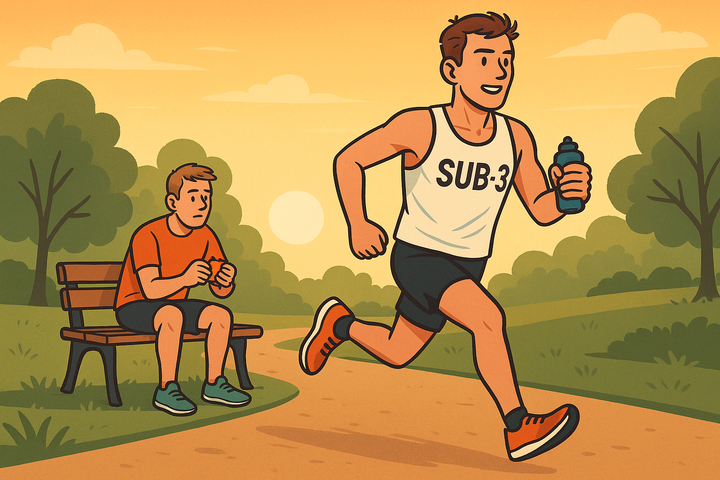Beetroot juice for sub-3 runners: does it actually work?
It’s not just hype. With regular use, beetroot juice can boost oxygen efficiency, improve running economy and help you go the distance on race day.

What Is Beetroot Juice Supposed to Do for Runners?
Back in the 1980s, beer had a kind of cult status among runners. In The New Competitive Runner’s Handbook (1988), Bob Glover famously wrote: “Nectar of the gods, ambrosia of those who seek fast times — beer may be the runner’s fuel.”
These days — at least judging by my clubmates and my own routine — that title has a new contender: beetroot juice.
Beetroot juice is naturally rich in nitrates. Once consumed, your body converts those nitrates into nitric oxide, a compound that helps blood vessels dilate and improves blood flow. This matters for runners: better blood flow means better oxygen delivery to muscles — and improved endurance performance.
Studies have shown beetroot juice can improve running economy, reduce the oxygen cost of exercise, and extend time to exhaustion — particularly in events lasting 5 to 30 minutes, but potentially beneficial at marathon pace as well.
⸻
How I Use Beetroot Juice in My Training Routine
The first thing I do each morning is knock back a small glass (about 150ml) of beetroot juice, straight from the fridge. I usually buy Beet It or Cawston Press and always check that it’s 90% or more beetroot, with minimal apple juice or sweeteners.
I drink it fresh, but concentrated shots are available too. I get mine in bulk for about £1.75 per litre — a carton keeps well in the fridge and lasts me the week. It’s one of the few supplements I take that I’d genuinely miss if I stopped.
Not only does it give a small hit of carbs before an easy fasted run, but it’s one of the few legal, natural aids I’ve found that genuinely feels like it supports endurance over time. It’s become a core part of my marathon training routine.
⸻
Beetroot Juice Before a Marathon: My Race Week Strategy
In the week leading up to a race, I increase my intake slightly. On race day, I’ll drink up to a half-litre — usually about 2 to 3 hours before the start, to allow nitrates to peak.
It’s not always easy to find abroad (in Valencia, it took a couple of hours of hunting), but most whole food shops carry it even when local supermarkets don’t.
This isn’t a taste to savour — it’s earthy, like drinking liquid compost. But you get used to it, and honestly, if you’re aiming for sub-3, taste isn’t the priority. Performance is. And if you think the taste is disgusting, trust me, it pales in comparison to bi-cab mixture.
⸻
Are There Any Side Effects?
Yes — and they’re harmless, but worth noting.
The most common one is pink or purple urine, especially after race-day doses when you’re dehydrated. This can also affect your stools. Don’t panic. It’s perfectly normal and nothing to worry about — but it might surprise you the first few times.
One word of warning: avoid antibacterial mouthwash. It can kill the oral bacteria that help convert nitrate into nitric oxide, potentially reducing the benefits. (Yes, that’s actually been studied.)
⸻
Final Thoughts: Is It Worth It for Sub-3 Runners?
In short: yes. Beetroot juice is one of the very few things I consistently take that feels worthwhile — not because it’s magic, but because the benefits compound over time.
It’s easy to tolerate, cheap in bulk, and backed by both science and lived experience. If you’re trying to break 3 hours, you’ll likely find — as I did — that the taste is a small price to pay for an edge that might count when it matters most.
Just don’t spill it. And be especially careful if wearing white!
⸻
Five Things Runners Should Consider About Drinking Beetroot Juice
1. It boosts oxygen efficiency.
Beetroot juice is packed with nitrates, which your body converts into nitric oxide — helping blood vessels dilate and delivering more oxygen to your working muscles. That means better endurance, especially at race pace.
2. It’s one of the few legal, natural performance aids.
Studies show it improves running economy and extends time to exhaustion. This isn’t quackery — it’s backed by science and experience, particularly for efforts lasting 5–30 minutes (but it can help marathoners too).
3. It’s cheap and easy to integrate.
You don’t need fancy powders. A bottle from Beet It or Cawston Press costs less than £2 and lasts a week. Just check it’s at least 90% beetroot. One small glass each morning is enough to make a difference over time.
4. It works best with consistency.
Beetroot juice compounds with use. Take it daily in training, and scale up slightly in race week (a pint, 2–3 hours before go-time, works well). This isn't a last-minute fix — it’s a training staple.
5. It’s not pretty, but it is powerful.
Yes, it tastes like compost and may turn your pee purple. But the payoff is real. For serious runners chasing sub-3, that earthy tang is just part of the process.
Enjoyed this article? Help keep Sub-3 running — support us with a coffee.
To help fund the running of the site, Sub-3 is an Amazon Associate and earns from qualifying purchases. We only recommend gear or kit that has genuinely helped in our own running and that we believe is worth considering.



